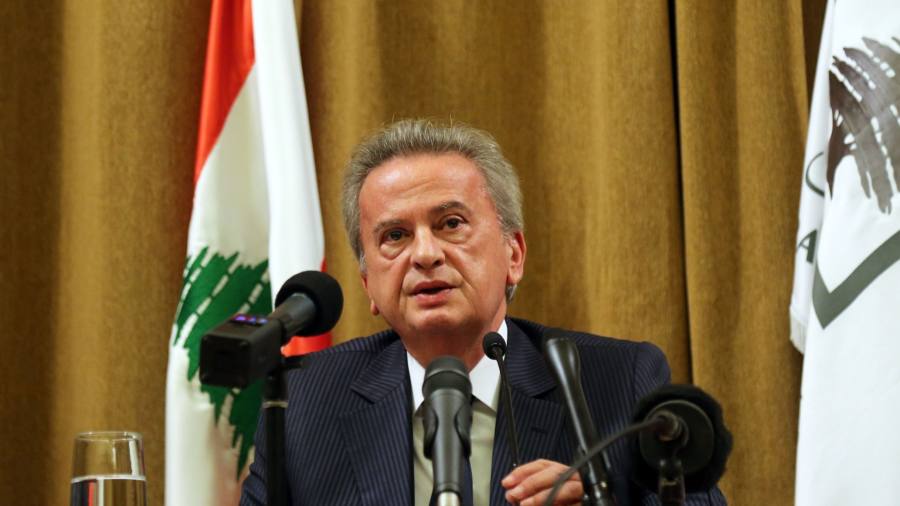An arrest warrant was issued in Paris against Lebanon’s central bank governor after he failed to appear on Tuesday before French investigators for questioning on corruption and money-laundering allegations.
French prosecutors and an investigating magistrate have been looking into Riad Salameh, along with his brother and a close associate, over allegations that they illicitly enriched themselves and laundered hundreds of millions of dollars of public funds for personal gain.
Once hailed as a financial whizz who steadied Lebanon’s precarious finances through years of instability, the 30-year Banque du Liban veteran has been the subject of intensifying scrutiny since Lebanon’s financial collapse in 2019 which drove three-quarters of the population into poverty.
Salameh, 72, is under investigation in Lebanon and at least five European countries for alleged financial crimes, but still commands support from many of Lebanon’s powerful political leaders.
Salameh, as well as his brother Raja Salameh, have strenuously denied the allegations against them. Salameh has repeatedly insisted that his personal wealth stems from his previous job as an investment banker, as well as family inheritance.
A person close to the French investigation said the arrest warrant issued in France would be publicised abroad. But it was unlikely to be actioned in Lebanon.
Pierre-Olivier Sur, Salameh’s French lawyer, called the summons to appear “invalid” because it was sent less than 10 days before the scheduled hearing.
Salameh said in a statement that the arrest warrant was a “violation of laws” and he would appeal against the decision. He also accused Aude Buresi, the French investigating judge, of “justice based on double standards”.
During the preliminary hearing that was supposed to be held on Tuesday, French investigators were set to question Salameh with a view to determining whether there was enough evidence to justify filing preliminary charges against him. Since he was not present, they were not able to make such a determination, said the person close to the investigation, but they could file preliminary charges at the end of the inquiry, if appropriate, even in absentia.
The arrest warrant could complicate Salameh’s tenure as governor. His current term ends in July and he has publicly said that he plans to step down, despite no clear plan for his succession. With widespread debate over whether a caretaker government with limited powers can even appoint his replacement, some political leaders are privately discussing the possibility of extending Salameh’s term.
Last month, a judge in Lebanon lifted a travel ban she had imposed on Salameh during her investigation of him. But it was widely assumed he would not travel to France, over fears he could be detained there.
European investigators, including from France, have visited Lebanon many times this year to question Salameh and dozens of others in connection with the state corruption allegations.
The European probes stem from a Swiss investigation that was launched more than two years ago. Swiss authorities suspect Salameh and his brother Raja of embezzling more than $300mn from the central bank from 2002-2015 through transactions to an obscure offshore company, according to a letter from the Swiss attorney-general’s office requesting legal assistance from Lebanese authorities, sent in November 2020.
Swiss investigators alleged that the offshore company, Forry Associates, was controlled by Raja, with more than $300mn then funnelled from Forry to Swiss bank accounts controlled by both brothers. Both Riad and Raja Salameh have denied wrongdoing.
In March 2022, more than $130mn in assets linked to the probes were frozen by Eurojust, citing continuing investigations in Luxembourg, France and Germany. Salameh has appealed against the decision.
A second person familiar with Salameh’s case said lawyers had filed requests in Lebanese courts to suspend the European investigations until Lebanon’s own was complete, arguing that parallel European investigations undermined Lebanon’s judicial sovereignty. Beirut’s public prosecutor pressed preliminary charges against Salameh, his brother and the head of Salameh’s executive office at the central bank in February.
Last week, a high-profile judge in Lebanon who has been leading the investigation into Salameh was removed from office.
Read the full article here




